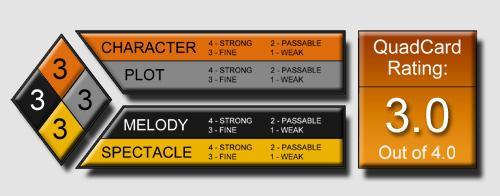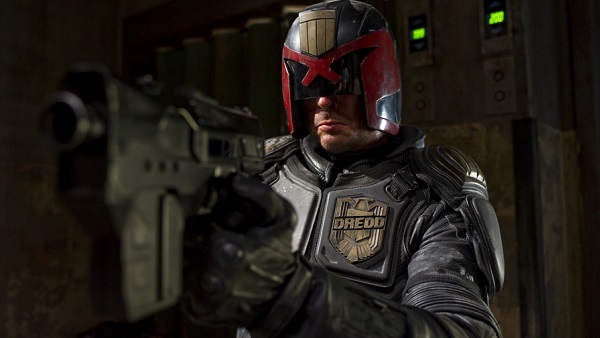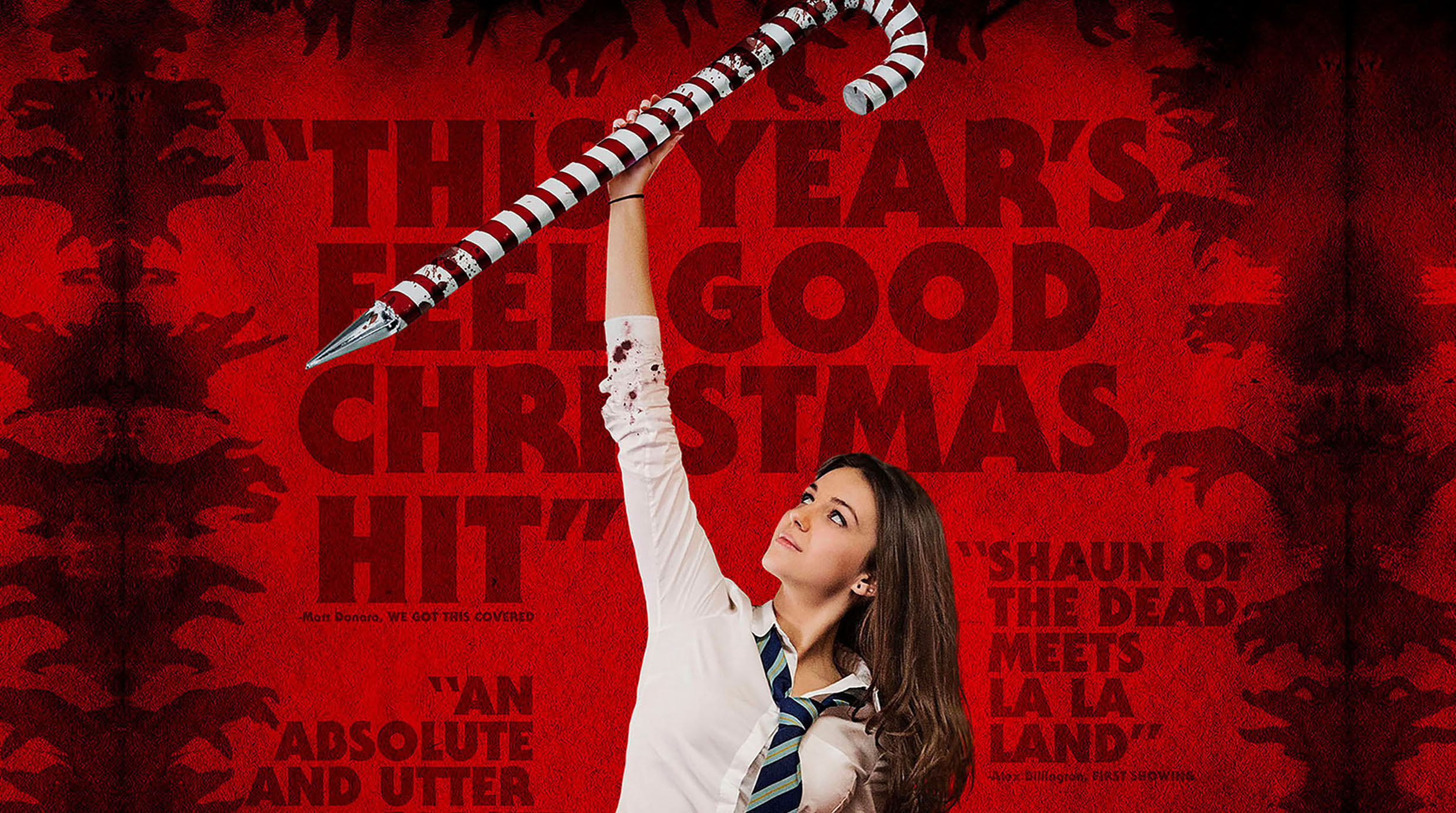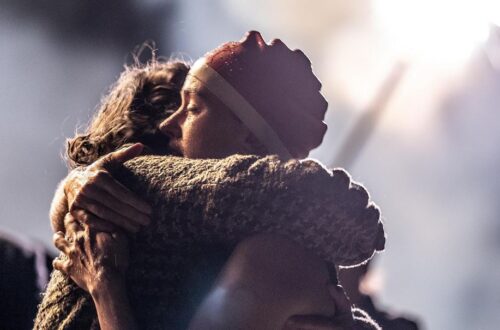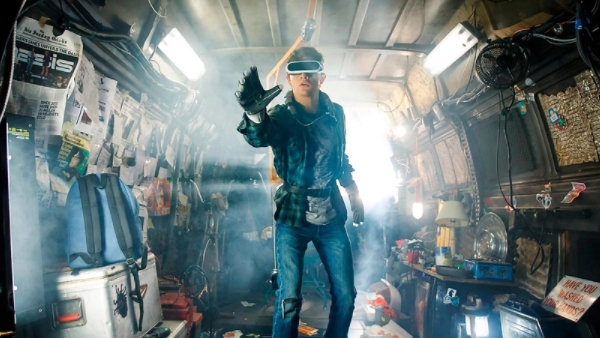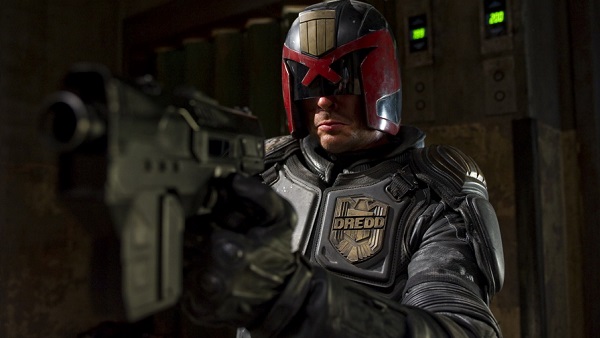
The list of rules set in place for rebooting bygone films is relatively anemic; general wisdom dictates that such practices should be verboten, but movie studios rarely allow little niggling details like hindsight and foresight get in the way of a quick buck. So the reboot machine churns, plopping recycling garbage onto a conveyor belt that empties straight into your local multiplex year after year, producing little of interest or note and giving audiences very little reason to leave their homes and attend the theater. Wonder why VOD has become so popular? Wonder no longer.
Yet even in the realm of rebooting – not quite the same as “remaking”, be assured, though it’s a flagrant violation of the laws of creativity for its own reasons – there are exceptions that prove the rule, and among that small number, Pete Travis’ Dredd stands out as one of the better recent examples of rebooting done right. We can identify the film’s qualifications just by comparing it pound for pound against Danny Cannon’s godawful 1995 Sylvester Stallone vehicle: did the original franchise fail to take off and set the world, and more importantly the box office, on fire? Check. Does the original retain any value except as a cheesy, ungainly disaster of unintentionally hilarious proportions? Check. Even today, does Judge Dredd still retain a loyal, cultish fanbase of defensive followers? It’s possible, but if they do exist, they’re not very vocal, so screw ’em. Bring on the superior product.
And boy howdy, is Dredd ever an improvement on its older, uglier, stupider brother. Travis and his star, the wonderful Karl Urban, don’t even bother much with pretense or even set-up here; there’s no allusion made to the events of Cannon’s film, and hardly much done by way of introduction. Mercifully, the basics here are elegantly and brutishly simple, and little legwork is required on our behalf to make odds of Dredd‘s background. In the distant future, the United States has become an irradiated, lifeless, barren patch of earth save for the Mega Cities, the sole remaining bastions of our civilization. Here, we’re dropped down in Mega City One, which spans the length of the East coast – from Boston to Washington D.C., we’re told – and exists as a concrete cesspool of crime and poverty.
Law here is upheld by judges, heavily armed and superbly trained men and women empowered to act out an entire courtroom sentencing in the blink of an eye. More often than not, when they pass judgment, it means death, especially when the judge in question is Dredd (Urban). We never see Dredd’s face for the entire picture; Urban marches around wearing his helmet (and the character’s trademark scowl) at all times. Arguably that makes it hard to tell how he feels about, say, being forced to assess a rookie judge, Anderson (Olivia Thirlby), who happens to possess impressive psychic powers, or getting locked in a massive tenant complex whose inhabitants are out for his blood on the orders of crime lord Ma-Ma (Lena Headey).
But the granite-tough Urban manages to convey plenty with a mere twitch of a lip, and that’s all the acting dynamism he needs to move us forward; once the pieces fall into place, Dredd becomes a cousin to fellow 2012 genre release The Raid: Redemption (though it’s worth noting that both films were in production at the same time, rendering any accusations of mooching inert). Dredd and Anderson move from block to block, gunning down baddies, though not without reservations on the newbie’s behalf, and generally acting as the fly in Ma-Ma’s ointment. She’s not without vicious cunning, of course, and one of the film’s greatest pleasures lies in watching Headey play the scornful woman in power with the furious grace only she can; you may not have thought you needed to see Cersei go ham with a Gatling gun twice her own size, but when she does, you’ll eat it up.
For fans of slasher-level fare – or 2008’s delightfully amoral Punisher: War Zone, itself a reboot of a comic book whose hero believes in fascist vigilantism –Dredd‘s a satisfyingly violent treat; thugs get dispatched with efficient but suitably bloody ease, and the action even stumbles into realms of artistry rarely seen in product of its kind. Chalk that up to the “slow-mo” conceit – Headey’s drug empire manufactures a hallucinogenic that causes its users to experience time at 1% its normal rate, and we get to witness that beautiful trip with all of its color-heightened glory time and time again. It’s a high that’s often interrupted by graphic arterial spray and surprising dollops grue, oftentimes at Dredd’s hands; flourishes like these, so rarely seen in this category of film, are entirely welcome and help enhance Dredd‘s grimly campy charms.
G-S-T- Ruling:
None of this is to say that Dredd is an art picture, not by any stretch of the means, but it’s an elevated slice of goofy sci-fi shoot-’em-up amorality. A better picture, or a more conscientious one, might have done more to engage the callousness inherent in its plot conceits; those details might strike some as troubling, and Travis’ unwillingness to loudly confront the politics of judging even more so. But Dredd at least has the decency to do so with subtlety, alternately questioning its principal character’s sense of justice and chuckling at the apathy that appears to come with his calling. In between all of that, the film is an immensely fun, propulsive, and splattery romp, which may be all that we can reasonably ask of it. That it even considers being more feels like a gift.
